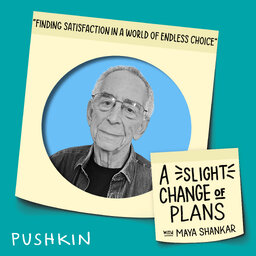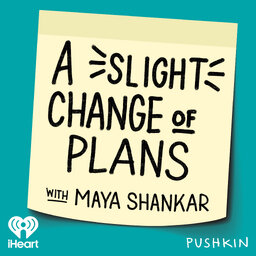Maya on Brené Brown's Podcast
We recently shared a conversation between Maya and Brené on A Slight Change of Plans where they talked about Maya's appearance on Brené's podcast, Dare to Lead. Today we are sharing that conversation with you!
In this episode of Dare to Lead, Brené and Maya discuss how unexpected changes can disrupt our paths, challenge our identities, and require us to build new ways of navigating the world. They delve into the science behind change and its impact on how we live, love, and lead.
Check out Brené's Dare to Lead podcast wherever you get your podcasts.
In 1 playlist(s)
A Slight Change of Plans
What happens when life doesn’t go according to plan? In this award-winning podcast, cognitive scient…Social links
Follow podcast
Recent clips

Finding Satisfaction in a World of Endless Choice
29:07

Brené Brown and Maya Talk “Heated Rivalry,” Mental Spirals, and Moral Beauty
41:59

The Invisible Weight of Olympic Gold
34:12
 A Slight Change of Plans
A Slight Change of Plans